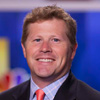
News Director
WBAL-TV (Hearst Television)
I've helped plan WBAL-TV's election coverage for more than 20 years now. While I can't say we've experienced any other election cycle quite like this one, we've covered enough local and national campaigns to know what works and what doesn't work when it comes to big political coverage. We let the candidates speak for themselves. That's been my biggest takeaway–ask direct questions and let the candidates do the rest. Ten second soundbites have their place in local TV news-but not in successful political coverage. Let the candidates talk and then fact-check what they say.
I'm particularly proud of Hearst Television's Get the Facts initiative. We work hand-in-hand with our Washington, D.C. Bureau on everything from election security to the rules for political donations to fact-checking major political speeches. We fact-check everyone and everything, including most of the political ads on our air. And we show our work. There's a lot of process journalism in our Commitment 2024 coverage-just the way it should be.
When it comes to candidate interviews, in many cases, we'll post the entire raw interview online for transparency.
We make it very clear with our audience that we've partnered with the Associated Press for race results. If a different network calls a race with zero votes counted, we explain to the audience what's happening and methods the networks use to make these types of calls. And we use the word "projection" a lot. We make it clear to the audience that any results they see on election night are unofficial. Nothing is official until the election is certified.
If we're not first with a projection, I can live with that. I'd much rather be accurate than first.
We overcommunicate this information, if that's even possible. If there's a discrepancy, we stop everything and explain. We want to be as transparent as possible. We've spent decades building trust with our audience-that's not something we take lightly. We feel this responsibility each and every day.
Local TV news is still the best way for a candidate to deliver their message to potential voters. We host commercial-free debates and air them in prime time (and stream them 24/7 on our Very Local app). We are happy to give candidates the time to explain their position on the issues. But I also think it's our responsibility to make sure candidates are talking about issues of most importance to potential voters-not just their individual talking points. So we help steer those conversations the best way we can. At the end of the day, we just want to be fair. We check our personal political persuasions as the door. We're here to make sure voters have all the information they need before they cast their vote. We're not trying to vote for them.